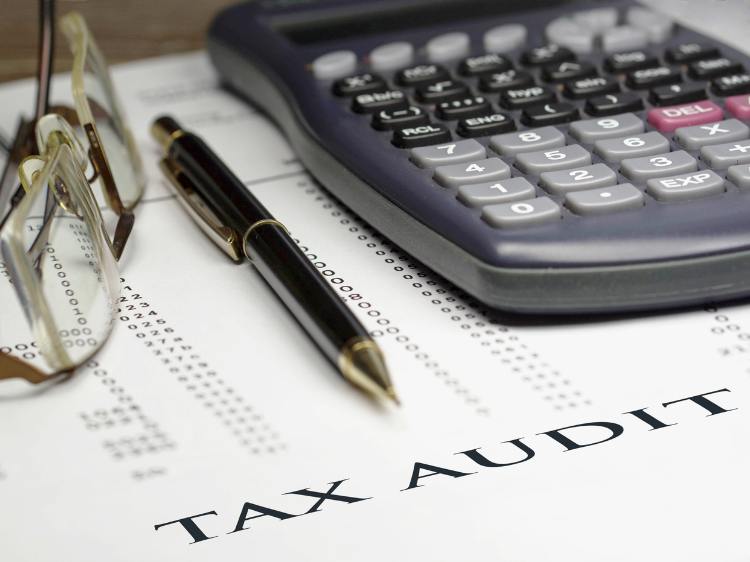Tax Audits and Assessments: What Businesses Need to Know

In Australia, tax audits are a fact of life for many businesses. An audit is a formal review of your tax affairs conducted by the Australian Taxation Office (ATO) to verify the accuracy of your tax returns and ensure you are complying with tax laws. While the prospect of an audit can be daunting, understanding the process and being prepared can help minimize stress and ensure a smooth experience.
Tax Audit Insurance: Peace of Mind for Businesses
For many businesses, tax audit insurance can provide valuable peace of mind. This type of insurance can help cover the costs associated with defending yourself in an audit, including accountant fees, legal fees, and other expenses. While it won't prevent an audit from happening, it can help you navigate the process more confidently and reduce the financial burden.
What is a Tax Audit?
A tax audit is a formal examination of your business tax return by the ATO. The ATO may select your business for an audit for various reasons, including:
Inconsistencies in your tax return:
This could include mismatched information between your income and expenses or large deductions that seem unusual.
Unreported income:
The ATO may suspect you have unreported income from sales, investments, or other sources.
Industry benchmarks:
If your business operates in an industry with typical profit margins, the ATO may compare your profits to those benchmarks and investigate if there are significant discrepancies.
Random selection:
The ATO also conducts random audits as part of its compliance activities.
Types of Tax Audits
There are several different types of tax audits that the ATO may conduct, each with its own scope and focus. Here's a breakdown of the most common types:
Full audits:
This is the most comprehensive type of audit, where the ATO will examine all aspects of your tax return in detail.
Limited-scope audits:
These audits focus on specific areas of your tax return, such as a particular deduction or income stream.
Desk audits:
Desk audits are typically conducted by correspondence, where the ATO will request additional documentation or clarification on specific items in your return.
What to Expect During a Tax Audit
If your business is selected for an audit, you will receive a notification from the ATO outlining the scope of the audit and the information they require. The ATO will typically assign a case officer to handle your audit.
During the audit process, you can expect the ATO to:
-
Request documentation to support the information in your tax return, such as receipts, invoices, and bank statements.
-
Ask questions about your business operations and tax affairs.
-
Issue a draft assessment outlining any adjustments they propose to your tax return.
How to Prepare for a Tax Audit
While you cannot prevent an audit from happening, there are steps you can take to prepare for one and minimize the stress:
Maintain good record-keeping practices:
Keep accurate and up-to-date records of all your income and expenses for at least five years. This includes receipts, invoices, bank statements, and other relevant documentation.
Understand your tax obligations:
Familiarize yourself with the tax laws and regulations that apply to your business. This will help you ensure you are reporting your income and expenses correctly.
Seek professional advice:
If you are unsure about any aspect of your tax affairs, consult with a registered tax agent or accountant. They can help you prepare your tax returns accurately and advise you on how to respond to an audit.
Tax Audit Triggers: What to Avoid
As mentioned earlier, the ATO may select your business for an audit for various reasons. Here are some common tax audit triggers to avoid:
Large or unusual deductions:
Claiming large or unusual deductions without proper documentation is a red flag for the ATO.
Mismatched information:
Ensure the information you report on your tax return matches the information provided on your invoices, receipts, and bank statements.
Round numbers:
Using round numbers for income and expenses can raise suspicion with the ATO.
Unreported income:
Failing to report all your income sources is a serious offense that can lead to penalties and interest charges.
Home office deductions:
If you claim home office deductions, ensure you meet the ATO's eligibility criteria and maintain proper records.
- Industry
- Art
- Causes
- Crafts
- Dance
- Drinks
- Film
- Fitness
- Food
- Игры
- Gardening
- Health
- Главная
- Literature
- Music
- Networking
- Другое
- Party
- Religion
- Shopping
- Sports
- Theater
- Wellness
- News


